
経験論
Empiricism

☆ 哲学において経験論(empiricism) とは、真の知識や正当性は感覚的経験や経験的証拠からのみ、あるいは主に得られるとする認識論的見解である。合理主義や懐疑主義とともに、認識論における いくつかの対立する見解のひとつである。経験論者は、人間には判断の誤りにつながる認知の偏りや限界があるため、純粋に論理的な推論を用いるよりも経験論 がより信頼できる真理を見つける方法であると主張している。経験論は、生得的な考えや伝統よりもむしろ、考えの形成における経験的証拠の中心的な役割を強 調している。歴史的に、経験論は「白紙」概念(tabula rasa)と関連しており、それによれば人間の心は誕生時に「白紙」であり、後の経験によってのみ思考を発展させるというものであった。科学哲学における 経験論は、特に実験で発見された証拠を重視する。すべての仮説や理論は、先験的な推論や直感、啓示だけに頼るのではなく、自然界の観察に対して検証されな ければならないというのが、科学的方法の基本的な部分である。自然科学者がよく用いる経験論は、「知識は経験に基づいている」「知識は暫定的で確率的なも のであり、継続的な修正と反証の対象となる」と考えている。実験や検証された測定ツールを含む経験的研究は、科学的方法の指針となる(→「経験論と主体 性」)。
【注意】empiricism は経験論とも経験主義とも訳せる。ここでは、基本的に経験論で通す。
| In philosophy,
empiricism is an epistemological view which holds that true knowledge
or justification comes only or primarily from sensory experience and
empirical evidence.[1] It is one of several competing views within
epistemology, along with rationalism and skepticism. Empiricists argue
that empiricism is a more reliable method of finding the truth than
purely using logical reasoning, because humans have cognitive biases
and limitations which lead to errors of judgement.[2] Empiricism
emphasizes the central role of empirical evidence in the formation of
ideas, rather than innate ideas or traditions.[3] Empiricists may argue
that traditions (or customs) arise due to relations of previous sensory
experiences.[4] Historically, empiricism was associated with the "blank slate" concept (tabula rasa), according to which the human mind is "blank" at birth and develops its thoughts only through later experience.[5] Empiricism in the philosophy of science emphasizes evidence, especially as discovered in experiments. It is a fundamental part of the scientific method that all hypotheses and theories must be tested against observations of the natural world rather than resting solely on a priori reasoning, intuition, or revelation. Empiricism, often used by natural scientists, believes that "knowledge is based on experience" and that "knowledge is tentative and probabilistic, subject to continued revision and falsification".[6] Empirical research, including experiments and validated measurement tools, guides the scientific method. |
☆
哲学において経験論とは、真の知識や正当性は感覚的経験や経験的証拠からのみ、あるいは主に得られるとする認識論的見解である。合理主義や懐疑主義ととも
に、認識論におけるいくつかの対立する見解のひとつである。経験論者は、人間には判断の誤りにつながる認知の偏りや限界があるため、純粋に論理的な推論を
用いるよりも経験論がより信頼できる真理を見つける方法であると主張している。経験論は、生得的な考えや伝統よりもむしろ、考えの形成における経験的証拠
の中心的な役割を強調している。 歴史的に、経験論は「白紙=タブラ・ラサ」概念(tabula rasa)と関連しており、それによれば人間の心は誕生時に「白紙」であり、後の経験によってのみ思考を発展させるというものであった。 科学哲学における経験論は、特に実験で発見された証拠を重視する。すべての仮説や理論は、先験的な推論や直感、啓示だけに頼るのではなく、自然界の観察に対して検証されなければならないというのが、科学的方法の基本的な部分である。 自然科学者がよく用いる経験論は、「知識は経験に基づいている」「知識は暫定的で確率的なものであり、継続的な修正と反証の対象となる」と考えている。実験や検証された測定ツールを含む経験的研究は、科学的方法の指針となる。 |
| Etymology The English term empirical derives from the Ancient Greek word ἐμπειρία, empeiria, which is cognate with and translates to the Latin experientia, from which the words experience and experiment are derived.[7] |
語源 英語のempiricalは、古代ギリシャ語のἐμπειρία, empeiriaに由来し、これはラテン語のexperientiaと同義語であり、experienceやexperimentの語源となっている[7]。 |
| Background Main article: Empirical method A central concept in science and the scientific method is that conclusions must be empirically based on the evidence of the senses. Both natural and social sciences use working hypotheses that are testable by observation and experiment. The term semi-empirical is sometimes used to describe theoretical methods that make use of basic axioms, established scientific laws, and previous experimental results to engage in reasoned model building and theoretical inquiry. Philosophical empiricists hold no knowledge to be properly inferred or deduced unless it is derived from one's sense-based experience.[8] In epistemology (theory of knowledge) empiricism is typically contrasted with rationalism, which holds that knowledge may be derived from reason independently of the senses, and in the philosophy of mind it is often contrasted with innatism, which holds that some knowledge and ideas are already present in the mind at birth. However, many Enlightenment rationalists and empiricists still made concessions to each other. For example, the empiricist John Locke admitted that some knowledge (e.g. knowledge of God's existence) could be arrived at through intuition and reasoning alone. Similarly, Robert Boyle, a prominent advocate of the experimental method, held that we also have innate ideas.[9][10] At the same time, the main continental rationalists (Descartes, Spinoza, and Leibniz) were also advocates of the empirical "scientific method".[11][12] |
背景 主な記事 経験的方法 科学と科学的方法における中心的な概念は、結論は五感の証拠に経験的に基づかなければならないということである。自然科学も社会科学も、観察や実験によっ て検証可能な作業仮説を用いる。基本的な公理、確立された科学法則、過去の実験結果などを用いて、理性的なモデル構築や理論的探究を行う理論的方法を半経 験的と呼ぶこともある。 哲学的経験論者は、感覚に基づく経験から導かれない限り、いかなる知識も適切に推論または演繹されるものではないとする[8]。エピステモロジー(知識 論)においては、経験論は一般的に、知識は感覚とは無関係に理性から導かれるとする合理主義と対比され、心の哲学においては、知識や観念の一部は生まれな がらにして既に心に備わっているとする生得論と対比されることが多い。しかし、多くの啓蒙合理主義者と経験論者は、それでも互いに譲歩し合っていた。例え ば、経験主義者のジョン・ロックは、一部の知識(例えば神の存在に関する知識)は直感と推論だけで到達できると認めていた。同様に、実験法の著名な提唱者 であるロバート・ボイルは、人間にも生得的な考えがあると主張していた[9][10]。同時に、主要な大陸合理主義者(デカルト、スピノザ、ライプニッ ツ)も経験的な「科学的方法」を提唱していた[11][12]。 |
| History Early empiricism 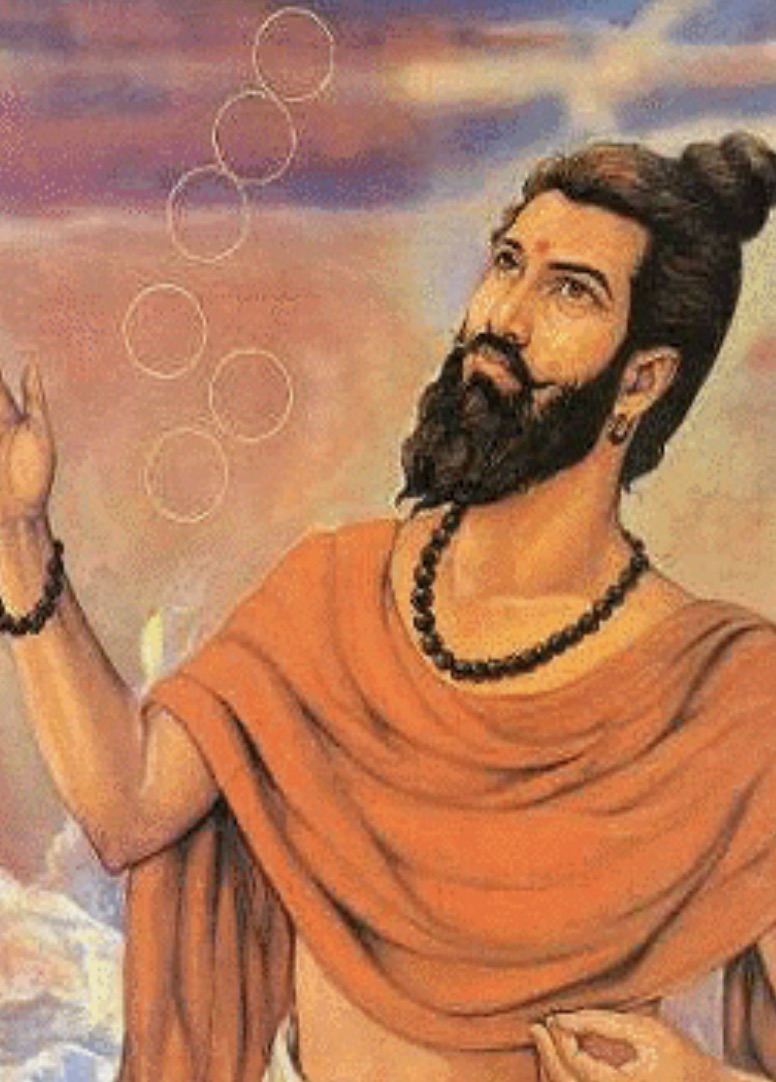 Maharishi Kanada  Aristotle Between 600 and 200 BCE, the Vaisheshika school of Hindu philosophy, founded by the ancient Indian philosopher Kanada, accepted perception and inference as the only two reliable sources of knowledge.[13][14][15] This is enumerated in his work Vaiśeṣika Sūtra. The Charvaka school held similar beliefs, asserting that perception is the only reliable source of knowledge while inference obtains knowledge with uncertainty. The earliest Western proto-empiricists were the empiric school of ancient Greek medical practitioners, founded in 330 BCE.[16] Its members rejected the doctrines of the dogmatic school, preferring to rely on the observation of phantasiai (i.e., phenomena, the appearances).[17] The Empiric school was closely allied with the Pyrrhonist school of philosophy, which made the philosophical case for their proto-empiricism. The notion of tabula rasa ("clean slate" or "blank tablet") connotes a view of the mind as an originally blank or empty recorder (Locke used the words "white paper") on which experience leaves marks. This denies that humans have innate ideas. The notion dates back to Aristotle, c. 350 BC: What the mind (nous) thinks must be in it in the same sense as letters are on a tablet (grammateion) which bears no actual writing (grammenon); this is just what happens in the case of the mind. (Aristotle, On the Soul, 3.4.430a1). Aristotle's explanation of how this was possible was not strictly empiricist in a modern sense, but rather based on his theory of potentiality and actuality, and experience of sense perceptions still requires the help of the active nous. These notions contrasted with Platonic notions of the human mind as an entity that pre-existed somewhere in the heavens, before being sent down to join a body on Earth (see Plato's Phaedo and Apology, as well as others). Aristotle was considered to give a more important position to sense perception than Plato, and commentators in the Middle Ages summarized one of his positions as "nihil in intellectu nisi prius fuerit in sensu" (Latin for "nothing in the intellect without first being in the senses"). This idea was later developed in ancient philosophy by the Stoic school, from about 330 BCE. Stoic epistemology generally emphasizes that the mind starts blank, but acquires knowledge as the outside world is impressed upon it.[18] The doxographer Aetius summarizes this view as "When a man is born, the Stoics say, he has the commanding part of his soul like a sheet of paper ready for writing upon."[19] 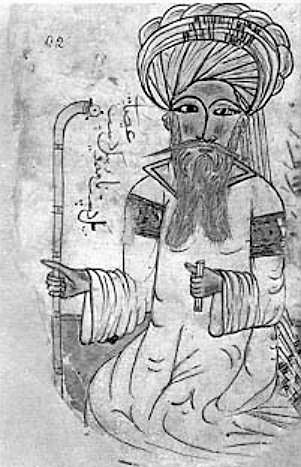 A drawing of Ibn Sina (Avicenna) from 1271 Islamic Golden Age and Pre-Renaissance (5th to 15th centuries CE) During the Middle Ages (from the 5th to the 15th century CE) Aristotle's theory of tabula rasa was developed by Islamic philosophers starting with Al Farabi (c. 872 – c. 951 CE), developing into an elaborate theory by Avicenna (c. 980 – 1037 CE)[20] and demonstrated as a thought experiment by Ibn Tufail.[21] For Avicenna (Ibn Sina), for example, the tabula rasa is a pure potentiality that is actualized through education, and knowledge is attained through "empirical familiarity with objects in this world from which one abstracts universal concepts" developed through a "syllogistic method of reasoning in which observations lead to propositional statements which when compounded lead to further abstract concepts". The intellect itself develops from a material intellect (al-'aql al-hayulani), which is a potentiality "that can acquire knowledge to the active intellect (al-'aql al-fa'il), the state of the human intellect in conjunction with the perfect source of knowledge".[20] So the immaterial "active intellect", separate from any individual person, is still essential for understanding to occur. In the 12th century CE, the Andalusian Muslim philosopher and novelist Abu Bakr Ibn Tufail (known as "Abubacer" or "Ebu Tophail" in the West) included the theory of tabula rasa as a thought experiment in his Arabic philosophical novel, Hayy ibn Yaqdhan in which he depicted the development of the mind of a feral child "from a tabula rasa to that of an adult, in complete isolation from society" on a desert island, through experience alone. The Latin translation of his philosophical novel, entitled Philosophus Autodidactus, published by Edward Pococke the Younger in 1671, had an influence on John Locke's formulation of tabula rasa in An Essay Concerning Human Understanding.[21] A similar Islamic theological novel, Theologus Autodidactus, was written by the Arab theologian and physician Ibn al-Nafis in the 13th century. It also dealt with the theme of empiricism through the story of a feral child on a desert island, but departed from its predecessor by depicting the development of the protagonist's mind through contact with society rather than in isolation from society.[22] During the 13th century Thomas Aquinas adopted into scholasticism the Aristotelian position that the senses are essential to the mind. Bonaventure (1221–1274), one of Aquinas' strongest intellectual opponents, offered some of the strongest arguments in favour of the Platonic idea of the mind. Renaissance Italy In the late renaissance various writers began to question the medieval and classical understanding of knowledge acquisition in a more fundamental way. In political and historical writing Niccolò Machiavelli and his friend Francesco Guicciardini initiated a new realistic style of writing. Machiavelli in particular was scornful of writers on politics who judged everything in comparison to mental ideals and demanded that people should study the "effectual truth" instead. Their contemporary, Leonardo da Vinci (1452–1519) said, "If you find from your own experience that something is a fact and it contradicts what some authority has written down, then you must abandon the authority and base your reasoning on your own findings."[23] Significantly, an empirical metaphysical system was developed by the Italian philosopher Bernardino Telesio which had an enormous impact on the development of later Italian thinkers, including Telesio's students Antonio Persio and Sertorio Quattromani, his contemporaries Thomas Campanella and Giordano Bruno, and later British philosophers such as Francis Bacon, who regarded Telesio as "the first of the moderns".[24] Telesio's influence can also be seen on the French philosophers René Descartes and Pierre Gassendi.[24] The decidedly anti-Aristotelian and anti-clerical music theorist Vincenzo Galilei (c. 1520 – 1591), father of Galileo and the inventor of monody, made use of the method in successfully solving musical problems, firstly, of tuning such as the relationship of pitch to string tension and mass in stringed instruments, and to volume of air in wind instruments; and secondly to composition, by his various suggestions to composers in his Dialogo della musica antica e moderna (Florence, 1581). The Italian word he used for "experiment" was esperimento. It is known that he was the essential pedagogical influence upon the young Galileo, his eldest son (cf. Coelho, ed. Music and Science in the Age of Galileo Galilei), arguably one of the most influential empiricists in history. Vincenzo, through his tuning research, found the underlying truth at the heart of the misunderstood myth of 'Pythagoras' hammers' (the square of the numbers concerned yielded those musical intervals, not the actual numbers, as believed), and through this and other discoveries that demonstrated the fallibility of traditional authorities, a radically empirical attitude developed, passed on to Galileo, which regarded "experience and demonstration" as the sine qua non of valid rational enquiry. British empiricism 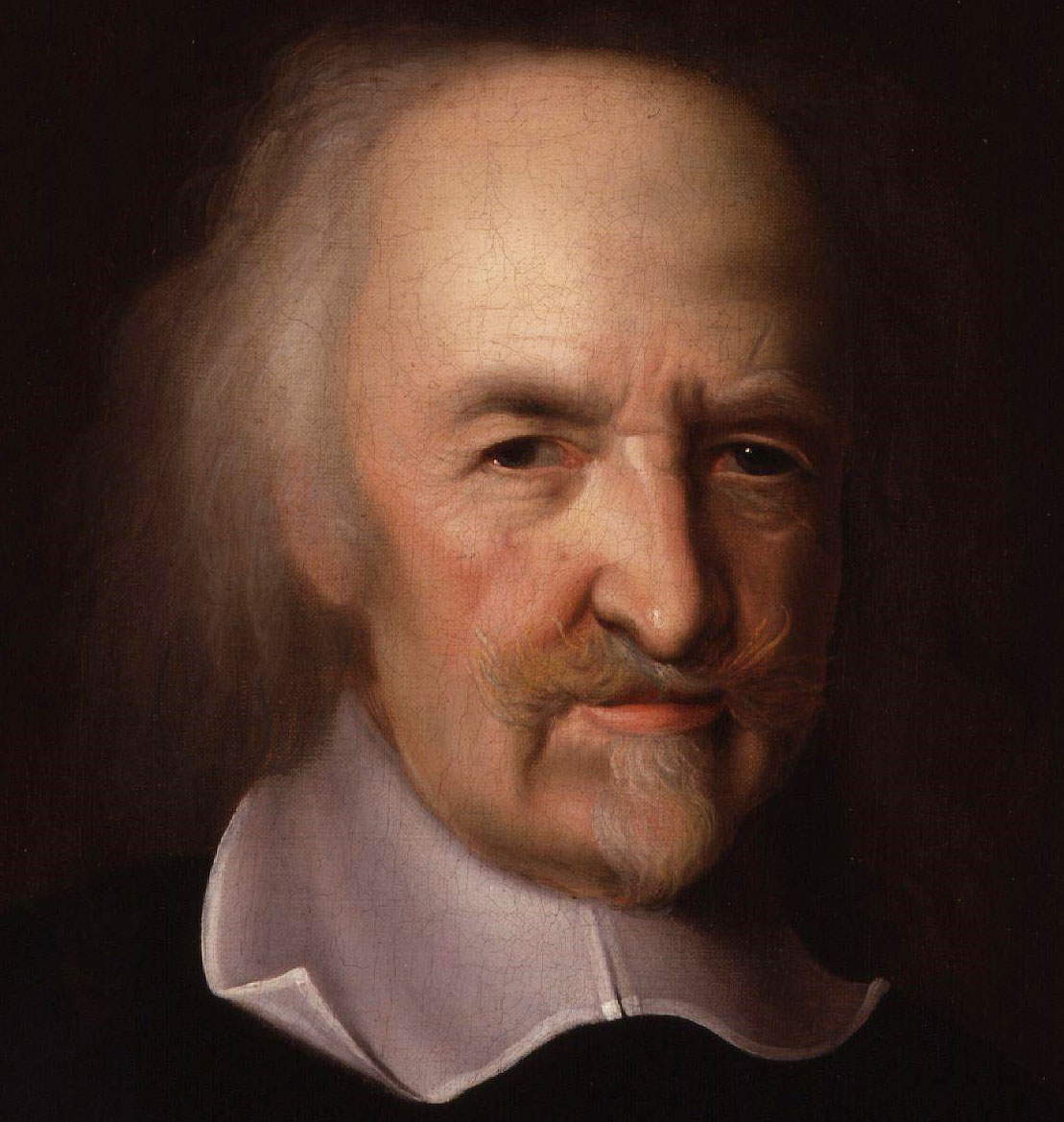 Thomas Hobbes British empiricism, a retrospective characterization, emerged during the 17th century as an approach to early modern philosophy and modern science. Although both integral to this overarching transition, Francis Bacon, in England, first advocated for empiricism in 1620, whereas René Descartes, in France, laid the main groundwork upholding rationalism around 1640. (Bacon's natural philosophy was influenced by Italian philosopher Bernardino Telesio and by Swiss physician Paracelsus.)[24] Contributing later in the 17th century, Thomas Hobbes and Baruch Spinoza are retrospectively identified likewise as an empiricist and a rationalist, respectively. In the Enlightenment of the late 17th century, John Locke in England, and in the 18th century, both George Berkeley in England and David Hume in Scotland, all became leading exponents of empiricism, hence the dominance of empiricism in British philosophy. The distinction between rationalism and empiricism was not formally made until Immanuel Kant, in Germany, around 1780, who sought to merge the two views.[citation needed] In response to the early-to-mid-17th-century "continental rationalism", John Locke (1632–1704) proposed in An Essay Concerning Human Understanding (1689) a very influential view wherein the only knowledge humans can have is a posteriori, i.e., based upon experience. Locke is famously attributed with holding the proposition that the human mind is a tabula rasa, a "blank tablet", in Locke's words "white paper", on which the experiences derived from sense impressions as a person's life proceeds are written. There are two sources of our ideas: sensation and reflection. In both cases, a distinction is made between simple and complex ideas. The former are unanalysable, and are broken down into primary and secondary qualities. Primary qualities are essential for the object in question to be what it is. Without specific primary qualities, an object would not be what it is. For example, an apple is an apple because of the arrangement of its atomic structure. If an apple were structured differently, it would cease to be an apple. Secondary qualities are the sensory information we can perceive from its primary qualities. For example, an apple can be perceived in various colours, sizes, and textures but it is still identified as an apple. Therefore, its primary qualities dictate what the object essentially is, while its secondary qualities define its attributes. Complex ideas combine simple ones, and divide into substances, modes, and relations. According to Locke, our knowledge of things is a perception of ideas that are in accordance or discordance with each other, which is very different from the quest for certainty of Descartes.[citation needed] 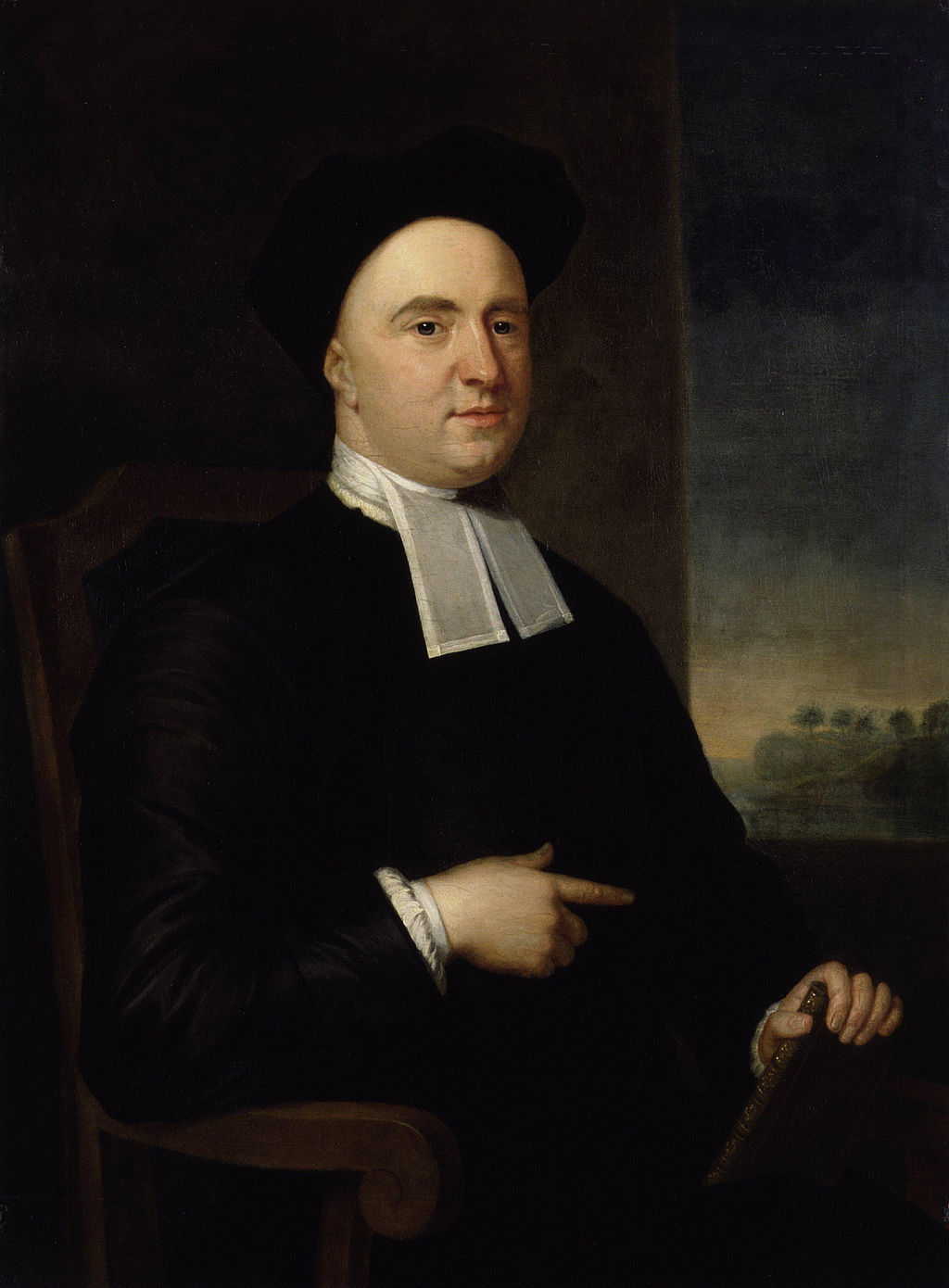 Bishop George Berkeley A generation later, the Irish Anglican bishop George Berkeley (1685–1753) determined that Locke's view immediately opened a door that would lead to eventual atheism. In response to Locke, he put forth in his Treatise Concerning the Principles of Human Knowledge (1710) an important challenge to empiricism in which things only exist either as a result of their being perceived, or by virtue of the fact that they are an entity doing the perceiving. (For Berkeley, God fills in for humans by doing the perceiving whenever humans are not around to do it.) In his text Alciphron, Berkeley maintained that any order humans may see in nature is the language or handwriting of God.[25] Berkeley's approach to empiricism would later come to be called subjective idealism.[26][27] Scottish philosopher David Hume (1711–1776) responded to Berkeley's criticisms of Locke, as well as other differences between early modern philosophers, and moved empiricism to a new level of skepticism. Hume argued in keeping with the empiricist view that all knowledge derives from sense experience, but he accepted that this has implications not normally acceptable to philosophers. He wrote for example, "Locke divides all arguments into demonstrative and probable. On this view, we must say that it is only probable that all men must die or that the sun will rise to-morrow, because neither of these can be demonstrated. But to conform our language more to common use, we ought to divide arguments into demonstrations, proofs, and probabilities—by ‘proofs’ meaning arguments from experience that leave no room for doubt or opposition."[28] And,[29] I believe the most general and most popular explication of this matter, is to say [See Mr. Locke, chapter of power.], that finding from experience, that there are several new productions in matter, such as the motions and variations of body, and concluding that there must somewhere be a power capable of producing them, we arrive at last by this reasoning at the idea of power and efficacy. But to be convinced that this explication is more popular than philosophical, we need but reflect on two very obvious principles. First, That reason alone can never give rise to any original idea, and secondly, that reason, as distinguished from experience, can never make us conclude, that a cause or productive quality is absolutely requisite to every beginning of existence. Both these considerations have been sufficiently explained: and therefore shall not at present be any farther insisted on. — Hume, Section XIV, "Of the idea of necessary connexion", in A Treatise of Human Nature Hume divided all of human knowledge into two categories: relations of ideas and matters of fact (see also Kant's analytic-synthetic distinction). Mathematical and logical propositions (e.g. "that the square of the hypotenuse is equal to the sum of the squares of the two sides") are examples of the first, while propositions involving some contingent observation of the world (e.g. "the sun rises in the East") are examples of the second. All of people's "ideas", in turn, are derived from their "impressions". For Hume, an "impression" corresponds roughly with what we call a sensation. To remember or to imagine such impressions is to have an "idea". Ideas are therefore the faint copies of sensations.[4] 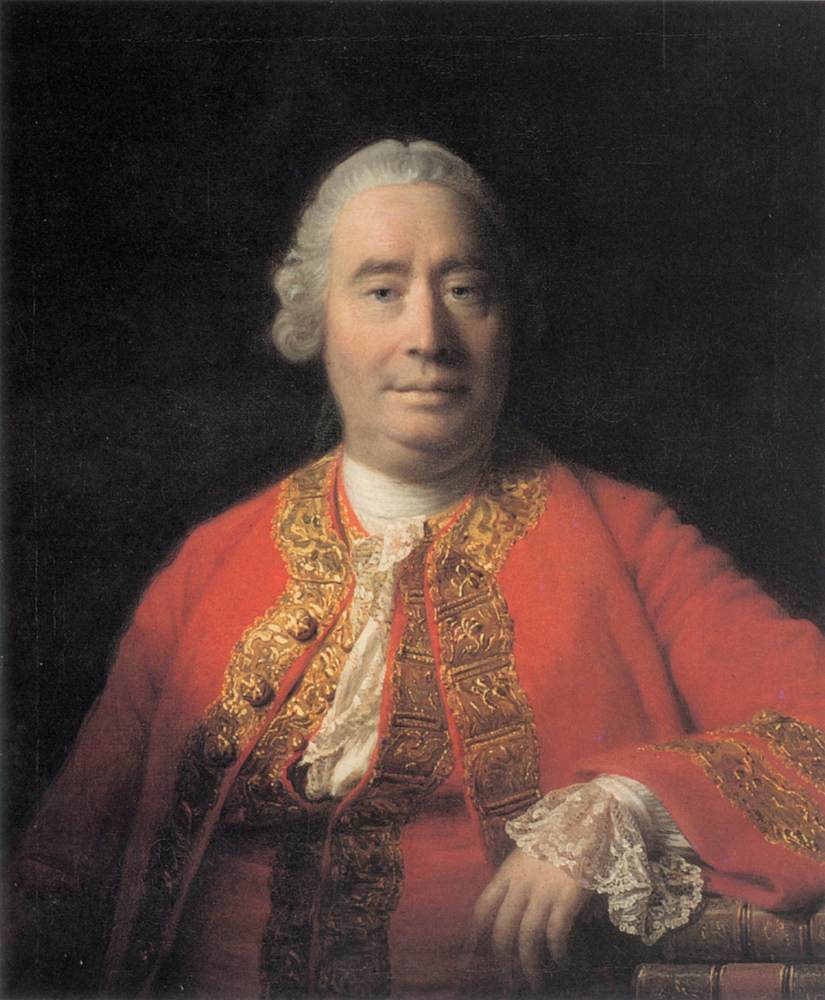 David Hume's empiricism led to numerous philosophical schools. Hume maintained that no knowledge, even the most basic beliefs about the natural world, can be conclusively established by reason. Rather, he maintained, our beliefs are more a result of accumulated habits, developed in response to accumulated sense experiences. Among his many arguments Hume also added another important slant to the debate about scientific method—that of the problem of induction. Hume argued that it requires inductive reasoning to arrive at the premises for the principle of inductive reasoning, and therefore the justification for inductive reasoning is a circular argument.[4] Among Hume's conclusions regarding the problem of induction is that there is no certainty that the future will resemble the past. Thus, as a simple instance posed by Hume, we cannot know with certainty by inductive reasoning that the sun will continue to rise in the East, but instead come to expect it to do so because it has repeatedly done so in the past.[4] Hume concluded that such things as belief in an external world and belief in the existence of the self were not rationally justifiable. According to Hume these beliefs were to be accepted nonetheless because of their profound basis in instinct and custom. Hume's lasting legacy, however, was the doubt that his skeptical arguments cast on the legitimacy of inductive reasoning, allowing many skeptics who followed to cast similar doubt.[citation needed] Phenomenalism Main article: Phenomenalism Most of Hume's followers have disagreed with his conclusion that belief in an external world is rationally unjustifiable, contending that Hume's own principles implicitly contained the rational justification for such a belief, that is, beyond being content to let the issue rest on human instinct, custom and habit.[30] According to an extreme empiricist theory known as phenomenalism, anticipated by the arguments of both Hume and George Berkeley, a physical object is a kind of construction out of our experiences.[31] Phenomenalism is the view that physical objects, properties, events (whatever is physical) are reducible to mental objects, properties, events. Ultimately, only mental objects, properties, events, exist—hence the closely related term subjective idealism. By the phenomenalistic line of thinking, to have a visual experience of a real physical thing is to have an experience of a certain kind of group of experiences. This type of set of experiences possesses a constancy and coherence that is lacking in the set of experiences of which hallucinations, for example, are a part. As John Stuart Mill put it in the mid-19th century, matter is the "permanent possibility of sensation".[32] Mill's empiricism went a significant step beyond Hume in still another respect: in maintaining that induction is necessary for all meaningful knowledge including mathematics. As summarized by D.W. Hamlin: [Mill] claimed that mathematical truths were merely very highly confirmed generalizations from experience; mathematical inference, generally conceived as deductive [and a priori] in nature, Mill set down as founded on induction. Thus, in Mill's philosophy there was no real place for knowledge based on relations of ideas. In his view logical and mathematical necessity is psychological; we are merely unable to conceive any other possibilities than those that logical and mathematical propositions assert. This is perhaps the most extreme version of empiricism known, but it has not found many defenders.[27] Mill's empiricism thus held that knowledge of any kind is not from direct experience but an inductive inference from direct experience.[33] The problems other philosophers have had with Mill's position center around the following issues: Firstly, Mill's formulation encounters difficulty when it describes what direct experience is by differentiating only between actual and possible sensations. This misses some key discussion concerning conditions under which such "groups of permanent possibilities of sensation" might exist in the first place. Berkeley put God in that gap; the phenomenalists, including Mill, essentially left the question unanswered. In the end, lacking an acknowledgement of an aspect of "reality" that goes beyond mere "possibilities of sensation", such a position leads to a version of subjective idealism. Questions of how floor beams continue to support a floor while unobserved, how trees continue to grow while unobserved and untouched by human hands, etc., remain unanswered, and perhaps unanswerable in these terms.[27][34] Secondly, Mill's formulation leaves open the unsettling possibility that the "gap-filling entities are purely possibilities and not actualities at all".[34] Thirdly, Mill's position, by calling mathematics merely another species of inductive inference, misapprehends mathematics. It fails to fully consider the structure and method of mathematical science, the products of which are arrived at through an internally consistent deductive set of procedures which do not, either today or at the time Mill wrote, fall under the agreed meaning of induction.[27][34][35] The phenomenalist phase of post-Humean empiricism ended by the 1940s, for by that time it had become obvious that statements about physical things could not be translated into statements about actual and possible sense data.[36] If a physical object statement is to be translatable into a sense-data statement, the former must be at least deducible from the latter. But it came to be realized that there is no finite set of statements about actual and possible sense-data from which we can deduce even a single physical-object statement. The translating or paraphrasing statement must be couched in terms of normal observers in normal conditions of observation. There is, however, no finite set of statements that are couched in purely sensory terms and can express the satisfaction of the condition of the presence of a normal observer. According to phenomenalism, to say that a normal observer is present is to make the hypothetical statement that were a doctor to inspect the observer, the observer would appear to the doctor to be normal. But, of course, the doctor himself must be a normal observer. If we are to specify this doctor's normality in sensory terms, we must make reference to a second doctor who, when inspecting the sense organs of the first doctor, would himself have to have the sense data a normal observer has when inspecting the sense organs of a subject who is a normal observer. And if we are to specify in sensory terms that the second doctor is a normal observer, we must refer to a third doctor, and so on (also see the third man).[37][38] Logical empiricism Main article: Logical positivism Logical empiricism (also logical positivism or neopositivism) was an early 20th-century attempt to synthesize the essential ideas of British empiricism (e.g. a strong emphasis on sensory experience as the basis for knowledge) with certain insights from mathematical logic that had been developed by Gottlob Frege and Ludwig Wittgenstein. Some of the key figures in this movement were Otto Neurath, Moritz Schlick and the rest of the Vienna Circle, along with A. J. Ayer, Rudolf Carnap and Hans Reichenbach. The neopositivists subscribed to a notion of philosophy as the conceptual clarification of the methods, insights and discoveries of the sciences. They saw in the logical symbolism elaborated by Frege (1848–1925) and Bertrand Russell (1872–1970) a powerful instrument that could rationally reconstruct all scientific discourse into an ideal, logically perfect, language that would be free of the ambiguities and deformations of natural language. This gave rise to what they saw as metaphysical pseudoproblems and other conceptual confusions. By combining Frege's thesis that all mathematical truths are logical with the early Wittgenstein's idea that all logical truths are mere linguistic tautologies, they arrived at a twofold classification of all propositions: the "analytic" (a priori) and the "synthetic" (a posteriori).[39] On this basis, they formulated a strong principle of demarcation between sentences that have sense and those that do not: the so-called "verification principle". Any sentence that is not purely logical, or is unverifiable, is devoid of meaning. As a result, most metaphysical, ethical, aesthetic and other traditional philosophical problems came to be considered pseudoproblems.[40] In the extreme empiricism of the neopositivists—at least before the 1930s—any genuinely synthetic assertion must be reducible to an ultimate assertion (or set of ultimate assertions) that expresses direct observations or perceptions. In later years, Carnap and Neurath abandoned this sort of phenomenalism in favor of a rational reconstruction of knowledge into the language of an objective spatio-temporal physics. That is, instead of translating sentences about physical objects into sense-data, such sentences were to be translated into so-called protocol sentences, for example, "X at location Y and at time T observes such and such".[41] The central theses of logical positivism (verificationism, the analytic–synthetic distinction, reductionism, etc.) came under sharp attack after World War II by thinkers such as Nelson Goodman, W. V. Quine, Hilary Putnam, Karl Popper, and Richard Rorty. By the late 1960s, it had become evident to most[who?] philosophers that the movement had pretty much run its course, though its influence is still significant among contemporary analytic philosophers such as Michael Dummett and other anti-realists. Pragmatism In the late 19th and early 20th century, several forms of pragmatic philosophy arose. The ideas of pragmatism, in its various forms, developed mainly from discussions between Charles Sanders Peirce and William James when both men were at Harvard in the 1870s. James popularized the term "pragmatism", giving Peirce full credit for its patrimony, but Peirce later demurred from the tangents that the movement was taking, and redubbed what he regarded as the original idea with the name of "pragmaticism". Along with its pragmatic theory of truth, this perspective integrates the basic insights of empirical (experience-based) and rational (concept-based) thinking. 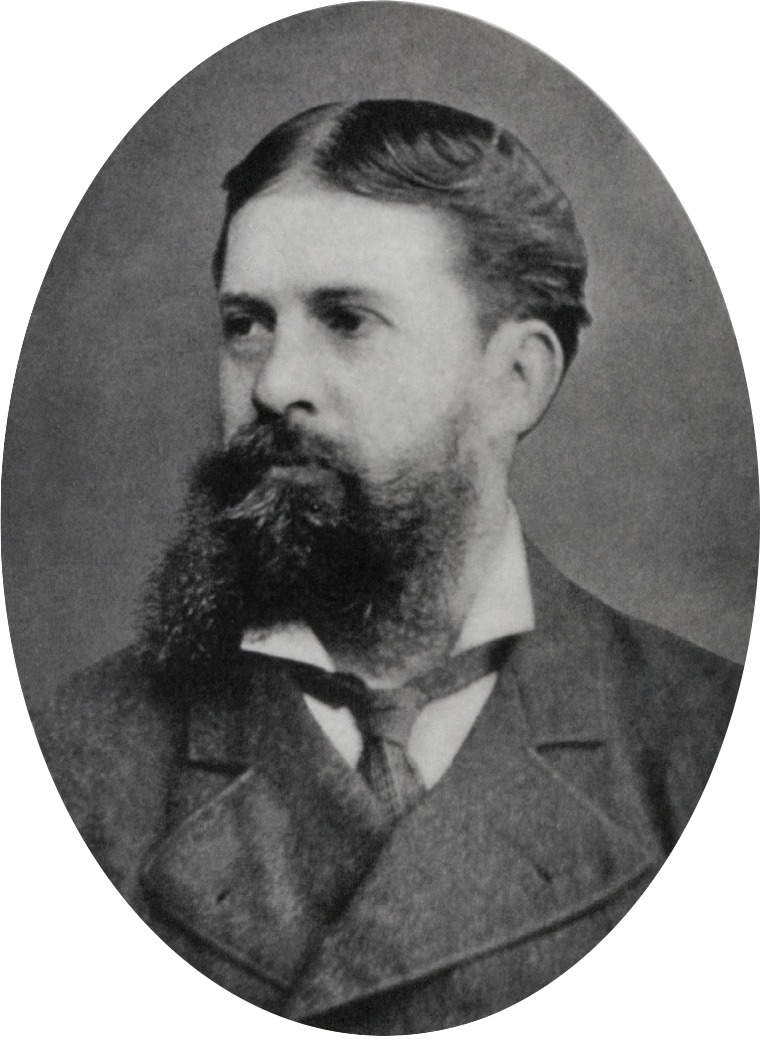 Charles Sanders Peirce Charles Peirce (1839–1914) was highly influential in laying the groundwork for today's empirical scientific method.[42] Although Peirce severely criticized many elements of Descartes' peculiar brand of rationalism, he did not reject rationalism outright. Indeed, he concurred with the main ideas of rationalism, most importantly the idea that rational concepts can be meaningful and the idea that rational concepts necessarily go beyond the data given by empirical observation. In later years he even emphasized the concept-driven side of the then ongoing debate between strict empiricism and strict rationalism, in part to counterbalance the excesses to which some of his cohorts had taken pragmatism under the "data-driven" strict-empiricist view. Among Peirce's major contributions was to place inductive reasoning and deductive reasoning in a complementary rather than competitive mode, the latter of which had been the primary trend among the educated since David Hume wrote a century before. To this, Peirce added the concept of abductive reasoning. The combined three forms of reasoning serve as a primary conceptual foundation for the empirically based scientific method today. Peirce's approach "presupposes that (1) the objects of knowledge are real things, (2) the characters (properties) of real things do not depend on our perceptions of them, and (3) everyone who has sufficient experience of real things will agree on the truth about them. According to Peirce's doctrine of fallibilism, the conclusions of science are always tentative. The rationality of the scientific method does not depend on the certainty of its conclusions, but on its self-corrective character: by continued application of the method science can detect and correct its own mistakes, and thus eventually lead to the discovery of truth".[43]  William James In his Harvard "Lectures on Pragmatism" (1903), Peirce enumerated what he called the "three cotary propositions of pragmatism" (L: cos, cotis whetstone), saying that they "put the edge on the maxim of pragmatism". First among these, he listed the peripatetic-thomist observation mentioned above, but he further observed that this link between sensory perception and intellectual conception is a two-way street. That is, it can be taken to say that whatever we find in the intellect is also incipiently in the senses. Hence, if theories are theory-laden then so are the senses, and perception itself can be seen as a species of abductive inference, its difference being that it is beyond control and hence beyond critique—in a word, incorrigible. This in no way conflicts with the fallibility and revisability of scientific concepts, since it is only the immediate percept in its unique individuality or "thisness"—what the Scholastics called its haecceity—that stands beyond control and correction. Scientific concepts, on the other hand, are general in nature, and transient sensations do in another sense find correction within them. This notion of perception as abduction has received periodic revivals in artificial intelligence and cognitive science research, most recently for instance with the work of Irvin Rock on indirect perception.[44][45] Around the beginning of the 20th century, William James (1842–1910) coined the term "radical empiricism" to describe an offshoot of his form of pragmatism, which he argued could be dealt with separately from his pragmatism—though in fact the two concepts are intertwined in James's published lectures. James maintained that the empirically observed "directly apprehended universe needs ... no extraneous trans-empirical connective support",[46] by which he meant to rule out the perception that there can be any value added by seeking supernatural explanations for natural phenomena. James' "radical empiricism" is thus not radical in the context of the term "empiricism", but is instead fairly consistent with the modern use of the term "empirical". His method of argument in arriving at this view, however, still readily encounters debate within philosophy even today. John Dewey (1859–1952) modified James' pragmatism to form a theory known as instrumentalism. The role of sense experience in Dewey's theory is crucial, in that he saw experience as unified totality of things through which everything else is interrelated. Dewey's basic thought, in accordance with empiricism, was that reality is determined by past experience. Therefore, humans adapt their past experiences of things to perform experiments upon and test the pragmatic values of such experience. The value of such experience is measured experientially and scientifically, and the results of such tests generate ideas that serve as instruments for future experimentation,[47] in physical sciences as in ethics.[48] Thus, ideas in Dewey's system retain their empiricist flavour in that they are only known a posteriori. |
歴史 初期の経験論  マハリシ・カナダ  アリストテレス 紀元前600年から200年にかけて、古代インドの哲学者カナダによって創始されたヒンドゥー哲学のヴァイシェーシカ学派は、知覚と推論を信頼できる唯一 の知識源として受け入れていた[13][14][15]。これは彼の著作『Vaiśeţika Sūtra』に列挙されている。シャルヴァカ学派も同様の信念を持ち、知覚が唯一の信頼できる知識の源である一方、推論は不確実性を伴って知識を得るもの であると主張していた。 最も古い西洋の原始的無神論者は、紀元前330年に創設された古代ギリシアの医学者たちの経験学派であった[16]。そのメンバーは教義学派の教義を否定し、ファンタジアイ(現象、出現)の観察に頼ることを好んだ[17]。 タブラ・ラサ(「まっさらな石版」または「白紙」)という概念は、心をもともと空白の、あるいは空の記録装置(ロックは「白い紙」という言葉を使った)と してとらえ、その上に経験が痕跡を残すというものである。これは、人間が生得的な考えを持つことを否定している。この考え方は、紀元前350年頃のアリス トテレスに遡る: 心(ヌース)が考えることは、実際の文字(グラメノン)が書かれていない石版(グラマテオン)に文字が書かれているのと同じ意味で、心の中にあるに違いない。(アリストテレス『魂について』3.4.430a1)。 このようなことが可能であるというアリストテレスの説明は、近代的な意味での厳密な経験論ではなく、むしろ潜在性と実在性の理論に基づいており、感覚知覚 の経験は依然として能動的なヌースの助けを必要とする。このような概念は、人間の心は、地上の肉体と合体するために下界に送られる前に、天上のどこかにあ らかじめ存在していた存在であるというプラトン的な概念とは対照的であった(プラトンの『パエド』や『弁証論』などを参照)。アリストテレスはプラトンよ りも感覚に重要な位置を与えていると考えられており、中世の注釈者たちは彼の立場のひとつを「nihil in intellectu nisi prius fuerit in sensu」(ラテン語で「まず感覚になければ知性には何もない」という意味)と要約した。 この考え方は後に、紀元前330年頃からのストア派によって古代哲学に発展した。ストア派の認識論は一般的に、心は空白の状態から始まるが、外界が心に印 象づけられるにつれて知識を獲得していくことを強調している[18]。ドクソグラファーであるアエティウスは、この考え方を「人が生まれたとき、その魂の 命令する部分は、書くための用意ができた一枚の紙のようであるとストア派は言う」と要約している[19]。  1271年に描かれたイブン・シーナ(アヴィセンナ)の絵 イスラム黄金時代とルネサンス以前(5世紀から15世紀) 中世(CE.5世紀から15世紀まで)、アリストテレスのタブラ・ラサの理論は、アル・ファラービー(CE.872年頃 - CE.951年頃)に始まるイスラム哲学者によって発展させられ、アヴィセンナ(CE.980年頃 - CE.1037年頃)によって精巧な理論へと発展し[20]、イブン・トゥファイルによって思考実験として実証された。 [21]例えばアヴィセンナ(イブン・シーナ)にとって、タブラ・ラーサは教育によって現実化される純粋な潜在能力であり、知識は「観察が命題文につなが り、その命題文が複合されるとさらに抽象的な概念につながる」という「対句的な推論方法」によって展開される「普遍的な概念を抽象化するこの世の対象に対 する経験的な慣れ」によって獲得される。知性そのものは、「知識を獲得しうる潜在性」である物質的知性(al-áql al-hayulani)から、「知識の完全な源泉と結びついた人間の知性の状態」である能動的知性(al-áql al-fa'il)へと発展する[20]。つまり、個々の人間から切り離された非物質的な「能動的知性」が、理解が起こるためにはやはり不可欠なのであ る。 紀元12世紀、アンダルシアのイスラム哲学者であり小説家であったアブー・バクル・イブン・トゥファイル(西洋では「アブバサー」または「エブ・トファイ ル」として知られる)は、アラビア語の哲学小説『ヘイイ・イブン・ヤクダーン』の中で思考実験としてタブラ・ラサの理論を盛り込み、砂漠の島で「社会から 完全に隔離された」野生の子供の心が経験のみによって「タブラ・ラサから大人のものへと」発達していく様子を描いた。彼の哲学小説のラテン語訳である 『Philosophus Autodidactus』は、1671年にエドワード・ポッケ・ザ・ヤンガーによって出版され、ジョン・ロックが『人間の理解に関する試論』の中でタブ ラ・ラサを定式化したことに影響を与えた[21]。 同様のイスラム神学小説である『Theologus Autodidactus』は、13世紀にアラブの神学者であり医師であったイブン・アル=ナフィスによって書かれた。この小説もまた、無人島に住む野生 児の物語を通して経験論というテーマを扱っていたが、社会から隔離された状態ではなく、社会との接触を通して主人公の心が成長していく様を描くことで、前 作とは一線を画していた[22]。 13世紀、トマス・アクィナスは、感覚は心にとって不可欠であるというアリストテレスの立場をスコラ学に取り入れた。ボナヴェントゥール(1221- 1274)は、アクィナスの最も強力な知的敵対者の一人であり、プラトン的な心の考え方を支持する最も強力な議論を提供した。 ルネサンス期のイタリア ルネサンス後期には、さまざまな作家が知識獲得に関する中世的・古典的理解をより根本的に問い直すようになった。政治的、歴史的な文章においては、ニッコ ロ・マキアヴェッリとその友人フランチェスコ・ギッチャルディーニが新しい現実的な文体を創始した。特にマキアヴェッリは、すべてを精神的な理想と比較し て判断する政治に関する作家を軽蔑し、代わりに「効果的な真実」を研究するよう求めた。彼らの同時代人であるレオナルド・ダ・ヴィンチ(1452- 1519)は、「自分自身の経験から何かが事実であることがわかり、それがある権威者が書き記したことと矛盾するのであれば、その権威者を捨て、自分自身 の発見に基づいて推論しなければならない」と述べている[23]。 重要なことは、イタリアの哲学者ベルナルディーノ・テレジオによって経験的な形而上学体系が開発されたことである。この形而上学体系は、テレジオの弟子で あるアントニオ・ペルシオやセルトリオ・クアットロマーニ、同時代のトマス・カンパネラやジョルダーノ・ブルーノ、そしてテレジオを「近代人の第一人者」 とみなしたフランシス・ベーコンなどの後のイギリスの哲学者など、イタリアの思想家の発展に多大な影響を与えた[24]。 ガリレオの父であり、モノディーの発明者である反アリストテレス的で反宗教的な音楽理論家ヴィンチェンツォ・ガリレイ(1520年頃〜1591年)は、こ の方法を用いて、第一に、弦楽器では弦の張力や質量と音程の関係、管楽器では空気の量と音程の関係といった調律の問題を、第二に、『Dialogo della musica antica e moderna』(フィレンツェ、1581年)では作曲家への様々な提案によって、音楽の問題を見事に解決した。彼が「実験」を意味するイタリア語は esperimentoである。ガリレオ・ガリレイの時代における音楽と科学』(コエーリョ編)に登場する、歴史上最も影響力のある経験論者の一人であ る。ヴィンチェンツォは、調律の研究を通じて、誤解されていた「ピタゴラスのハンマー」の神話の核心にある根本的な真実(実際の数ではなく、関係する数の 2乗が音楽の音程をもたらすと信じられていた)を発見し、伝統的な権威の誤りを証明するこの発見やその他の発見を通じて、「経験と実証」を有効な合理的探 求の必須条件とみなす、根本的に実証的な態度が発展し、ガリレオに受け継がれた。 イギリスの経験論  トマス・ホッブズ イギリス経験論は、17世紀に近世哲学と近代科学へのアプローチとして登場した。両者ともこの包括的な変遷に不可欠であったが、イギリスのフランシス・ ベーコンが1620年に初めて経験論を唱えたのに対し、フランスのルネ・デカルトは1640年頃に合理主義を支持する主な基礎を築いた。(ベーコンの自然 哲学は、イタリアの哲学者ベルナルディーノ・テレジオとスイスの医師パラケルススの影響を受けている。17世紀後半の啓蒙主義では、イギリスのジョン・ ロックが、18世紀にはイギリスのジョージ・バークレーとスコットランドのデイヴィッド・ヒュームが、いずれも経験論の代表的な論者となった。合理主義と 経験論の区別が正式になされたのは、1780年頃にドイツのイマヌエル・カントがこの2つの見解を統合しようと試みてからである[要出典]。 17世紀初頭から半ばにかけての「大陸合理主義」に対抗して、ジョン・ロック(1632-1704)は『人間の理解に関する試論』(1689年)の中で、 人間が持ちうる唯一の知識は事後的なもの、すなわち経験に基づくものであるという非常に影響力のある見解を提唱した。ロックは、人間の心はタブラ・ラサ (tabula rasa)、ロックの言葉を借りれば「白紙の石版」であり、その上に、その人の人生が進むにつれて感覚から得られる経験が書き込まれていくという命題を唱 えたことで有名である。私たちの考えには、感覚と内省という2つの源泉がある。どちらの場合も、単純な観念と複雑な観念とに区別される。前者は分析不可能 であり、第一次的性質と第二次的性質に分解される。一次的性質は、その対象がそれであるために不可欠なものである。具体的な一次的性質がなければ、物体は それが何であるかわからない。例えば、リンゴがリンゴであるのは、その原子構造が配列されているからである。もしリンゴの構造が違っていたら、それはリン ゴではなくなってしまうだろう。二次的性質とは、一次的性質から我々が知覚できる感覚情報のことである。例えば、リンゴは様々な色、大きさ、質感で知覚で きるが、リンゴであることに変わりはない。したがって、一次的性質はその物体が本質的に何であるかを規定し、二次的性質はその属性を規定する。複雑な観念 は単純な観念を組み合わせ、物質、様式、関係に分かれる。ロックによれば、物事に関する知識とは、互いに一致または不一致している観念の知覚であり、デカ ルトの確実性の探求とは大きく異なっている[要出典]。  ジョージ・バークレー主教 その一世代後、アイルランド聖公会の主教ジョージ・バークレー(1685-1753)は、ロックの見解が直ちに最終的な無神論につながる扉を開くと判断し た。ロックに対抗して、彼は『人間知の原理に関する論考』(1710年)の中で、物事は知覚された結果、あるいは知覚している存在であるという事実によっ てのみ存在するという経験論に対する重要な挑戦を行った。(バークレーにとって、神は、人間が知覚することができないときにはいつでも、知覚することに よって人間の代わりをするのである)。バークレーは彼のテキスト『アルシフロン』において、人間が自然の中に見ることができる秩序は神の言語や筆跡である と主張していた[25]。バークレーの経験論へのアプローチは後に主観的観念論と呼ばれるようになる[26][27]。 スコットランドの哲学者デイヴィッド・ヒューム(1711-1776)は、ロックに対するバークレーの批判や近世哲学者間のその他の相違に応え、経験論を 懐疑主義の新たなレベルへと移行させた。ヒュームは、すべての知識は感覚的経験に由来するという経験論の見解に沿った主張を行ったが、このことは哲学者に とっては通常受け入れられない意味を持つことを認めた。例えば、「ロックはすべての議論を実証的なものと蓋然的なものに分けている。この考え方に基づけ ば、すべての人が死ななければならないとか、明日太陽が昇るというのは、どちらも実証できないから、可能性が高いと言わざるを得ない。しかし、われわれの 言葉をより一般的な用法に合わせるために、われわれは議論を実証、証明、確率に分けるべきである。『証明』とは、疑いや反論の余地を与えない経験からの議 論を意味する」[28]。 この問題の最も一般的で最も一般的な説明は、経験から、物質には身体の運動や変化のようないくつかの新しい生産物があることを発見し、それらを生み出すこ とのできる力がどこかにあるに違いないと結論づけ、この推論によって最終的に力と効力という考えに到達する、というものである[29]。しかし、この説明 が哲学的というより大衆的であることを確信するには、二つの非常に明白な原則を顧みる必要がある。第一に、理性だけでは決して独創的な考えを生じさせるこ とはできないということ、第二に、理性は経験とは区別されて、存在のあらゆる始まりには原因や生産的な性質が絶対に必要であると結論づけることはできない ということである。これらの考察はいずれも十分に説明されているので、現時点ではこれ以上主張する必要はない。 - ヒューム『人間本性論』第十四節「必要的結合の観念について ヒュームは人間の知識のすべてを、観念の関係と事実の問題とに分けた(カントの分析的・合成的区別も参照)。数学的・論理的命題(例えば「斜辺の2乗は2 辺の2乗の和に等しい」)は前者の例であり、世界の偶発的な観察に関わる命題(例えば「太陽は東から昇る」)は後者の例である。人々の「考え」はすべて、 彼らの「印象」に由来する。ヒュームにとって「印象」とは、われわれが感覚と呼ぶものとほぼ同じである。そのような印象を記憶したり想像したりすること は、「考え」を持つことである。したがって、イデアとは感覚のかすかなコピーである[4]。  デイヴィッド・ヒュームの経験論は、数多くの哲学的学派を生み出した。 ヒュームは、自然界に関する最も基本的な信念でさえも、理性によって決定的に確立される知識はないと主張した。ヒュームは、自然界に関する最も基本的な知 識でさえも、理性によって決定的に確立されることはないと主張した。むしろ、私たちの信念は、蓄積された感覚体験に対応して発達した、蓄積された習慣の結 果であると主張した。ヒュームはまた、科学的方法に関する議論に、帰納法の問題というもう一つの重要な視点を加えた。ヒュームは、帰納的推論の原理の前提 に到達するためには帰納的推論が必要であり、したがって帰納的推論の正当化は循環論証であると主張した[4]。帰納の問題に関するヒュームの結論の中に は、未来が過去に似ているという確実性はないというものがある。したがって、ヒュームが提起した単純な例として、太陽が東から昇り続けるということを帰納 推論によって確実に知ることはできないが、その代わりに過去に繰り返しそうだったからそうなると期待するようになる[4]。 ヒュームは、外界を信じることや自己の存在を信じることなどは合理的に正当化できないと結論づけた。ヒュームによれば、これらの信念は本能や習慣に深く基 づいているため、それでも受け入れられるべきものであった。しかし、ヒュームの永続的な遺産は、彼の懐疑的な議論が帰納的推論の正当性に投げかけた疑念で あり、後に続く多くの懐疑論者が同様の疑念を投げかけることを可能にした[要出典]。 現象論 主な記事 現象論 ヒュームの信奉者たちの多くは、外界を信じることは合理的に正当化できないというヒュームの結論に反対しており、ヒューム自身の原理が暗黙のうちにそのよ うな信念の合理的な正当性を含んでいた、つまり、この問題を人間の本能、習慣、習慣に任せることに満足することはなかったと主張している。 [30] ヒュームとジョージ・バークレーの両者の主張によって先取りされた、現象論として知られる極端な経験論理論によれば、物理的対象は我々の経験から作り出さ れた一種の構築物である。究極的には、精神的な対象、性質、出来事のみが存在する-それゆえ、密接に関連する主観的観念論という用語がある。現象論的な考 え方では、実在する物理的なものを視覚的に経験するということは、ある種の経験群を経験するということである。この種の体験の集合は、例えば幻覚がその一 部であるような体験の集合には欠けている不変性と一貫性を持っている。19世紀半ばにジョン・スチュアート・ミルが言ったように、物質とは「感覚の永続的 な可能性」である[32]。ミルの経験論は、さらにもう一つの点でヒュームを大きく超えた。D.W.ハムリンによって要約されているように: [ミルは、数学的真理は経験からの非常に高度に確認された一般化にすぎないと主張した。一般に演繹的な[そして先験的な]性質として考えられている数学的 推論を、ミルは帰納に基礎を置くとした。このように、ミルの哲学においては、観念の関係に基づく知識の本当の居場所はなかった。彼の見解では、論理的・数 学的必然性は心理的なものであり、我々は論理的・数学的命題が主張する以外の可能性を思いつくことができないにすぎない。これはおそらく知られている経験 論の最も極端なバージョンであるが、多くの擁護者を見つけることはできなかった[27]。 ミルの経験論はこのように、あらゆる種類の知識は直接的な経験からではなく、直接的な経験から帰納的に推論されるものであるとしていた[33]。 他の哲学者たちがミルの立場に対して抱えていた問題は以下の問題を中心としている: 第一に、ミルの定式化は、実際の感覚と可能な感覚とを区別することによってのみ直接経験とは何かを記述するときに困難に遭遇する。これは、そのような「感 覚の永続的可能性のグループ」がそもそも存在しうる条件に関するいくつかの重要な議論を見逃している。バークレーはその隙間に神を置いたが、ミルを含む現 象論者たちは、本質的にこの問いに答えることなく放置した。結局のところ、単なる「感覚の可能性」を超えた「現実」の側面を認めることができず、このよう な立場は主観的観念論につながる。ミルの定式化は、第二に、「間隙を埋める実体は純粋に可能性であり、まったく実在ではない」[34]という不安を抱かせ る可能性を残している。それは数学科学の構造と方法を十分に考慮しておらず、その産物は、今日でもミルが書いた当時でも、帰納法の合意された意味には該当 しない、内的に一貫した演繹的な一連の手続きによって到達している[27][34][35]。 もし物理的対象に関する記述が感覚データに関する記述に翻訳可能であるならば、前者は少なくとも後者から演繹可能でなければならない。しかし、そこから一 つの物理的対象に関する陳述さえも演繹できるような、実際的で可能な感覚データに関する陳述の有限集合は存在しないことが分かってきた。翻訳や言い換えの 記述は、通常の観測条件における通常の観測者の用語で表現されなければならない。しかし、純粋に感覚的な用語で表現され、正常な観察者の存在という条件を 満たすことを表現できる有限の陳述の集合は存在しない。現象主義によれば、正常な観察者が存在すると言うことは、仮に医師が観察者を検査したとすると、そ の医師には観察者が正常であるように見えるだろうという仮定を立てることである。しかしもちろん、医者自身が正常な観察者でなければならない。この医師の 正常性を感覚的に規定しようとすれば、最初の医師の感覚器官を検査するときに、正常な観察者が正常な観察者である被験者の感覚器官を検査するときに持つ感 覚データを、その医師自身が持っていなければならない2番目の医師を参照しなければならない。そして、二人目の医師が正常な観察者であることを感覚的に特 定しようとすれば、三人目の医師を参照しなければならないし、そうしなければならない(三人目の男も参照)[37][38]。 論理的経験論 主な記事 論理実証主義 論理的経験論(論理実証主義、新実証主義とも)は、20世紀初頭にイギリス経験論の本質的な考え方(知識の基礎として感覚的経験を強く強調するなど)を、 ゴットローブ・フレッゲやルートヴィヒ・ウィトゲンシュタインが発展させた数理論理学からのある種の洞察と統合しようとする試みであった。この運動の中心 人物には、オットー・ノイラス、モーリッツ・シュリックをはじめとするウィーン・サークルの面々や、A.J.エアー、ルドルフ・カルナップ、ハンス・ライ ヘンバッハらがいた。 新実証主義者たちは、哲学とは科学の方法、洞察、発見を概念的に解明するものであるという概念を信奉していた。彼らは、フレーゲ(1848-1925)と バートランド・ラッセル(1872-1970)によって考案された論理的象徴主義に、すべての科学的言説を、自然言語の曖昧さや変形のない理想的で論理的 に完全な言語に合理的に再構成できる強力な道具を見出した。その結果、形而上学的な擬似問題やその他の概念的混乱が生じた。すべての数学的真理は論理的で あるというフレーゲのテーゼと、すべての論理的真理は単なる言語的トートロジーであるという初期のウィトゲンシュタインの考えを組み合わせることによっ て、彼らはすべての命題を「分析的」(アプリオリ)と「合成的」(ポスト・ステリオリ)の2つに分類することに到達した[39]。これを基礎として、彼ら は意味を持つ文とそうでない文の間の強力な区分の原理、いわゆる「検証原理」を定式化した。純粋に論理的でない、あるいは検証不可能な文は意味を持たな い。その結果、形而上学的、倫理的、美学的、その他の伝統的な哲学的問題のほとんどは、疑似問題とみなされるようになった[40]。 新実証主義者の極端な経験論(少なくとも1930年代以前)においては、真に総合的な主張は直接的な観察や知覚を表現する究極的な主張(あるいは究極的な 主張の集合)に還元可能でなければならない。後年、カルナップとノイラートは、この種の現象論を放棄し、知識を客観的な時空間物理学の言語に合理的に再構 成することを支持した。つまり、物理的な物体に関する文章を感覚データに変換する代わりに、そのような文章はいわゆるプロトコル文章、例えば「XはY地点 でT時にこのようなことを観察している」という文章に変換されることになった[41]。論理実証主義の中心的なテーゼ(検証主義、分析的-合成的区別、還 元主義など)は第二次世界大戦後、ネルソン・グッドマン、W・V・クワイン、ヒラリー・パットナム、カール・ポパー、リチャード・ローティといった思想家 たちによって鋭い攻撃を受けるようになった。1960年代後半までには、ほとんどの[誰?]哲学者にとって、この運動がほぼ一巡したことが明らかになった が、マイケル・デュメットや他の反現実主義者など、現代の分析哲学者の間では、その影響はまだ大きい。 プラグマティズム 19世紀後半から20世紀初頭にかけて、いくつかのプラグマティズム哲学が生まれた。プラグマティズムの思想は、1870年代にハーバード大学に在籍して いたチャールズ・サンダース・パイアースとウィリアム・ジェイムズの議論から発展したものである。ジェームズは「プラグマティズム」という言葉を普及さ せ、その遺産はすべてペイスの手柄としたが、ペイスは後にこの運動が取っていた脱線に反感を抱き、本来の思想と見なしたものを「プラグマティシズム」と呼 び直した。真理についてのプラグマティックな理論とともに、この視点は経験的(経験に基づく)思考と合理的(概念に基づく)思考の基本的な洞察を統合して いる。  チャールズ・サンダース・パース チャールズ・パース(1839-1914)は、今日の経験的科学的手法の基礎を築く上で大きな影響力を持った人物である[42]。パースはデカルトの合理 主義特有の多くの要素を厳しく批判したが、合理主義を完全に否定したわけではない。実際、彼は合理主義の主要な考え方、とりわけ合理的概念が意味を持ちう るという考え方や、合理的概念は経験的観察によって与えられるデータを必然的に超えるという考え方に同意していた。後年、彼は厳密経験論と厳密合理主義の 間で当時進行中であった論争において、概念主導の側を強調し、「データ主導」の厳密経験論的見解のもとでプラグマティズムを取り入れた同業者たちの行き過 ぎを相殺するためでもあった。 ペアーズの主要な貢献のひとつは、帰納的推論と演繹的推論を競争的ではなく補完的に位置づけたことである。これにピアースは帰納的推論の概念を加えた。こ の3つの推論の組み合わせは、今日の経験に基づく科学的方法の主要な概念的基礎として機能している。ピアースのアプローチは、「(1)知識の対象は実在す る事物であり、(2)実在する事物の性格(性質)は我々の知覚に依存せず、(3)実在する事物について十分な経験を持つ者は皆、それらについての真理に同 意することを前提とする」。ピアースの誤謬主義の教義によれば、科学の結論は常に暫定的なものである。科学的方法の合理性は、その結論の確実性に依存する のではなく、その自己修正的な性格に依存する:方法を適用し続けることによって、科学は自らの誤りを発見し、修正することができ、その結果、最終的に真理 の発見につながる」[43]。  ウィリアム・ジェームズ ハーバード大学の『プラグマティズム講義』(1903年)の中で、ピアースは「プラグマティズムの3つのコタリー・プロポジション」(L: cos, cotis whetstone)と呼ぶものを列挙し、それらは「プラグマティズムの格言に端緒を与える」と述べた。その第一に挙げたのが、前述したペリパトス=トミ ストの観察であるが、彼はさらに、この感覚的知覚と知的着想との結びつきは双方向のものであることを観察している。つまり、知性に見出されるものはすべ て、先天的に感覚にもあるということができる。したがって、理論が理論に満ちているのであれば、感覚もまた理論に満ちているのであり、知覚そのものは帰納 的推論の一種とみなすことができる。このことは、科学的概念の誤謬性や再検討可能性と矛盾するものではない。なぜなら、制御や修正を超えるのは、唯一無二 の個性や「このものらしさ」-スコラ哲学者たちはこれを「ヘクセティ」と呼んだ-を持つ即時的知覚だけだからである。一方、科学的概念は一般的なものであ り、一過性の感覚は別の意味で科学的概念の中で修正される。このアブダクションとしての知覚という概念は、人工知能や認知科学の研究において定期的に復活 しており、最近では間接的知覚に関するアーヴィン・ロックの研究などが挙げられる[44][45]。 20世紀の初め頃、ウィリアム・ジェイムズ(1842-1910)は自身のプラグマティズムの分派を表現するために「急進的経験論」という言葉を作り、こ の言葉はジェイムズのプラグマティズムとは別個に扱うことができると主張していた。ジェイムズは、経験的に観察される「直接的に理解される宇宙 は、......外在的な超経験的な連結的支持を必要としない」と主張しており[46]、このことは、自然現象に対して超自然的な説明を求めることによっ て何らかの価値が付加されうるという認識を排除することを意味していた。ジェイムズの「急進的経験論」は、したがって「経験論」という用語の文脈において は急進的ではなく、その代わりに「経験的」という用語の現代的な用法とかなり一致している。しかし、この見解に至る彼の論法は、今日でも哲学界で議論にな りやすいものである。 ジョン・デューイ(1859-1952)は、ジェイムズのプラグマティズムを修正し、道具論として知られる理論を形成した。デューイの理論における感覚経 験の役割は極めて重要であり、彼は経験を、他のすべてが相互に関連し合う、統一された全体性として捉えたのである。デューイの基本的な思考は、経験論に則 り、現実は過去の経験によって決定されるというものであった。したがって、人間は過去の経験を適応させて実験を行い、その経験のパフォーマティビティを検 証する。そのような経験の価値は経験的かつ科学的に測定され、そのようなテストの結果は、倫理学と同様に物理科学においても、将来の実験のための道具とし て機能する思想を生み出す[47]。したがって、デューイの体系における思想は、事後的にしか知ることができないという点で、経験論的な趣を保っている。 |
| https://en.wikipedia.org/wiki/Empiricism |
|
| Abstract empiricism – Book Review of 1959 book by C. Wright Mills Empirical idealism – Philosophy that only minds and ideas are real Empirical realism – 1781 book by Immanuel Kant Empirical relationship – Mathematical relationship or correlation based solely on observation rather than theory Empirical research – Research using empirical evidence Empirical sociology Feminist empiricism – Perspective within feminist research Ground truth – Information provided by direct observation History of scientific method Inquiry – Any process that has the aim of augmenting knowledge, resolving doubt, or solving a problem Kantian empiricism – American philosopher (1912–1989) Natural philosophy – Philosophical study of nature Naturalism – Belief that only natural laws and forces operate in the universe Objectivity – Basic distinction in philosophy Positivism – Empiricist philosophical theory Psychological nativism – View in psychology about the brain Quasi-empirical method Sensualism – Epistemological position Transcendental Empiricism – French philosopher (1925–1995) |
抽象的経験主義 - C. ライト・ミルズによる1959年の本の書評 経験的観念論 - 心と観念のみが実在するという哲学。 経験的実在論 - イマヌエル・カントによる1781年の著書。 経験的関係 - 理論よりもむしろ観察のみに基づく数学的関係または相関関係 経験的研究 - 経験的証拠を用いた研究 経験社会学 フェミニズム経験論 - フェミニズム研究の視点 グランドトゥルース(真実) - 直接観察によって得られる情報 科学的方法の歴史 探究 - 知識の増強、疑問の解決、問題の解決を目的とするあらゆるプロセス カント経験論 - アメリカの哲学者(1912~1989年) 自然哲学 - 自然に関する哲学的研究 自然主義 - 宇宙には自然の法則と力だけが働いていると信じること 客観性 - 哲学における基本的な区別 実証主義 - 経験主義の哲学理論 心理学的自然主義 - 心理学における脳についての見解 準経験的方法 感覚主義 - 認識論的立場 超越論的経験論 - フランスの哲学者(1925~1995年) |
| https://en.wikipedia.org/wiki/Empiricism |
|
リ ンク
文 献
そ の他の情報
Copyleft, CC, Mitzub'ixi Quq Chi'j, 1996-2099
☆
 ☆
☆